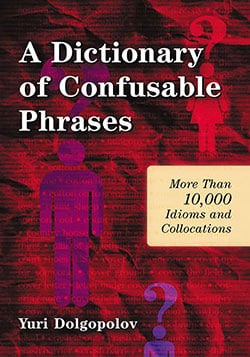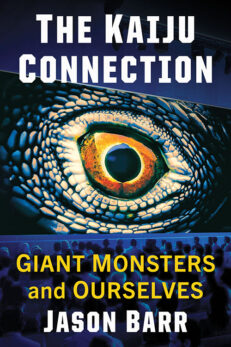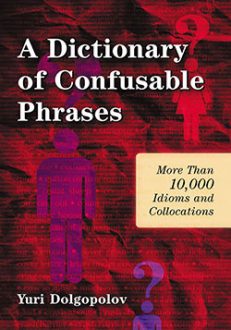A Dictionary of Confusable Phrases
More Than 10,000 Idioms and Collocations
$49.95
In stock
About the Book
Covering over 10,000 idioms and collocations characterized by similarity in their wording or metaphorical idea which do not show corresponding similarity in their meanings, this dictionary presents a unique cross-section of the English language. Though it is designed specifically to assist readers in avoiding the use of inappropriate or erroneous phrases, the book can also be used as a regular phraseological dictionary providing definitions to individual idioms, clichés, and set expressions. Most phrases included in the dictionary are in active current use, making information about their meanings and usage essential to language learners at all levels of proficiency.
About the Author(s)
Bibliographic Details
Yuri Dolgopolov
Format: softcover (7 x 10)
Pages: 403
Bibliographic Info: bibliography, indexes
Copyright Date: 2010
pISBN: 978-0-7864-5855-4
eISBN: 978-0-7864-5995-7
Imprint: McFarland
Table of Contents
Preface 1
Introduction
FALSE “FRIENDS” AND “ENEMIES” IN ENGLISH PHRASEOLOGY 3
ARRANGEMENT OF THE ENTRIES 6
LIST OF ABBREVIATIONS USED 8
DICTIONARY 9
Bibliography 341
Phrase Index 343
Key Word Index 376
Book Reviews & Awards
• “Non-native English speakers will highly appreciate [this work]. It aims at helping them understand metaphors and idioms, and consequently, improving their knowledge of the English language and culture. It also presents ‘a complete lexicographic inventory’ for the first time….Is it possible to describe a dictionary as a fascinating read? With A Dictionary of Confusable Phrases, this is exactly the case. This extensive volume is one of the most useful and valuable tools students of the English language can find to learn new words and expressions….It is an excellent resource to avoid misunderstandings and other silly mistakes. …user-friendly…enlightening, ideal for those who need immediate clarification…strongly recommended…Five stars”—Readers’ Favorite
• “Distinguishes between pairs of similar idiomatic phrases that learners and new speakers might mix up”—Reference & Research Book News





